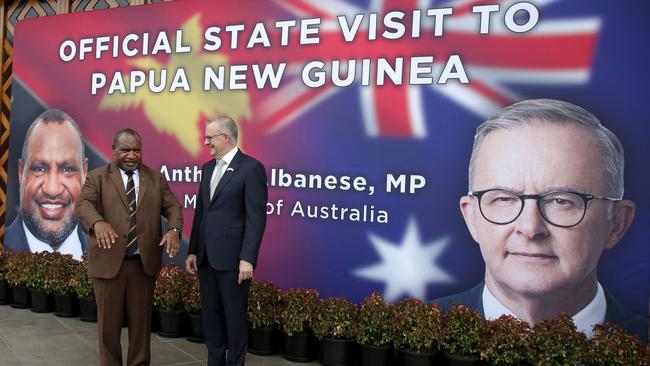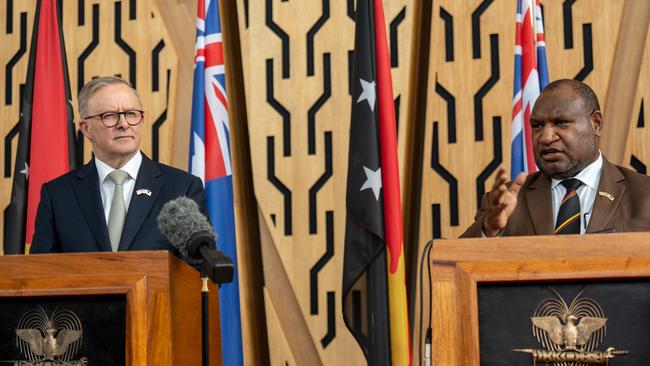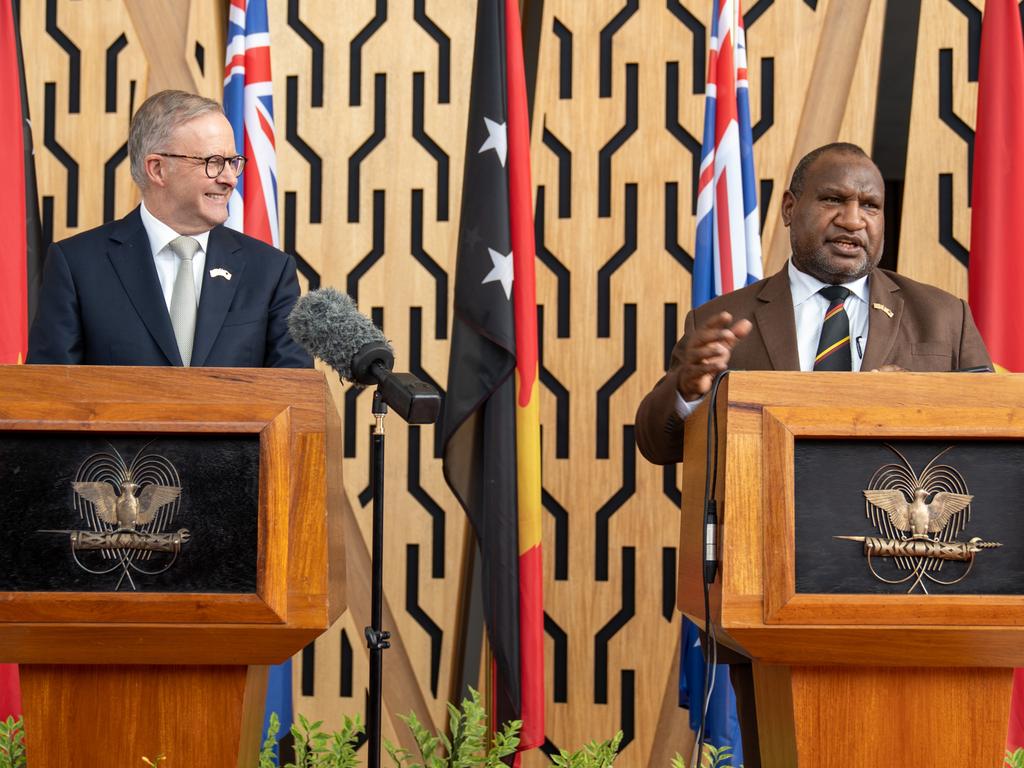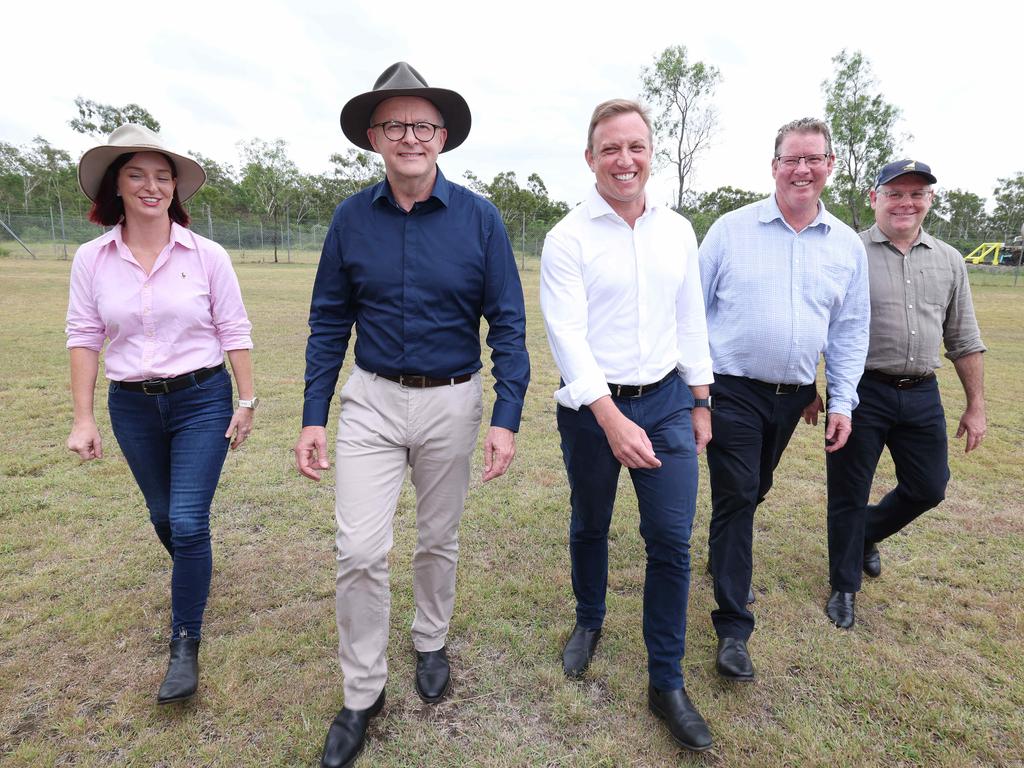
We should applaud the Prime Minister’s smoothly organised two-day visit to Papua New Guinea, Australia’s closest neighbour – though, sadly, the two are no longer quite the “greatest of friends”, as Albanese claimed.
He was, however, correct in tweeting that when Michael Somare and Gough Whitlam “oversaw PNG’s independence in 1975, there was a new hope for PNG and for our region”.
That optimism has leached away, as PNG’s governments have serially disappointed their own citizens – now 2½ times the New Zealand population – in helping deliver development, and as Australians have mostly turned away.
Canberra has paid only sporadic attention, its aid programs too often ineffective.
The centrepiece of the visit was Albanese’s groundbreaking speech to the PNG parliament in which he highlighted mateship, Papua New Guineans’ “deep faith in democracy” – matched only by their deep faith in Christianity – and that other religion, rugby league.
PNG expert and former political adviser Jeff Wall urges Canberra to follow up by building closer inter-parliamentary links, helping PNG’s 118 MPs – only two of whom, appallingly, are women – to become more effective representatives, including by improving research services and the committee system, by intensifying exchanges following a visit by federal MPs next week. This is an area, notes Wall, where China has nothing to offer.
The extent of PNG’s challenges was underlined by the parliament running on its diesel generator during Albanese’s visit, since power blackouts are incessant. Diplomatically, Albanese avoided mentioning the big pledge made by Scott Morrison on his visit in mid-2018 to increase PNG households’ access to reliable electricity from 15 per cent to 70 per cent by 2030. Just as well, since progress has been almost imperceptible.
The prime ministers’ core conversation focused on a new security pact, due for completion by mid-year. China was not mentioned, PNG Prime Minister James Marape said. It was surely at the centre of Albanese’s mind.

Despite the more equable tone in the China relationship since Labor was elected, the facts on the ground – including in our region – remain much the same. Canberra is rightly concerned, and is appropriately seeking to rebuild formerly uniquely close ties with the PNG Defence Force, and to boost links with the police and, ideally, prisons service too.
The big looming challenge for PNG’s security – unless the Port Moresby government at last learns lessons from the Bougainville civil war of 25 years ago – is a return to that conflict, with almost 98 per cent of Bougainvilleans voting four years ago for independence.
External security is not perceived by most Papua New Guineans as a significant concern, certainly when measured against the country’s development failings. And China continues to play its cards well. Last month, when senior Bank of China officials visited PNG, Marape encouraged them to set up a full banking network – while Australia’s banks have steadily reduced their PNG coverage. And Morris Tovabae, general secretary of Marape’s Pangu Party, recently spoke glowingly about China’s help, “with no political strings attached”.
Popular perceptions in PNG contrast with such elite-capture. Chinese firms rely heavily on their own labour rather than recruiting frustrated locals who, the resource industry has shown, have much to offer, while the quality of Chinese-built infrastructure has come under widespread criticism.
But to “bolster” Australian investment in PNG – chiefly now in gas production – as Albanese urges, in order “to unlock a new generation of prosperity”, and hopefully jobs for young Papua New Guineans, requires resolving a foreign exchange crisis that has grounded planes, removing government obstacles, and finally starting to tackle corruption seriously. Awkwardly, Marape’s International Trade and Investment Minister, Richard Maru, is an indefatigable protectionist.
Most of what Albanese and Marape agreed to is highly commendable. But implementation will remain a challenge. They announced, for instance, a reciprocal work and holiday visa arrangement from July 1 – but an Australia-PNG Ministerial Forum vowed originally to implement it in 2015.
It’s crucial that this isn’t allowed to happen to the new security pact. The best way to cement the relationship is to rebuild, sustainably, human connections. Achieving practical goals for PNG requires working with but also well beyond both governments.
Our government can incentivise institutions including universities and schools, hospitals and art galleries, media organisations and city and town councils, to develop counterpart links and exchanges.
More PNG guest workers is good. So are the 300 scholarships for PNG students announced by Albanese. But more are needed – 67 PNG students flew in a single charter to China last year. And working alongside businesses should be a priority.
To return to Captain Kirk, visiting beautiful PNG need not mean “to explore a strange new world”. In 2019, the last relevant year, only 12,000 Australians flew to holiday in PNG, compared with more than 350,000 each to Bali and Fiji. To become true friends, we need to get to know each other again. Albanese has made a good start.
Rowan Callick, an industry fellow at Griffith University’s Asia Institute, worked in PNG for 10 years.







Anthony Albanese has this week “boldly gone where few have gone before”, to slightly misquote Star Trek’s Captain Kirk.